Description
Otakada Ola Ojo / Holy Bible in Igala
Bible Society of Nigeria 1970 | Hardcover 1970
Product Features
- Format: Hardcover
- ISBN: 978-9782492500
- ISBN-10: 9782492507
- Pages: 1238
- Publisher: Bible Society of Nigeria
- Language: Igala
Overview
About 100 years ago, a man chosen and sent by God came to a remote area of the Sub-Saharan jungle to present the Light. Ultimately, God used him to translate His Holy and precious Word into the Igala language. Even today, people from four neighboring tribes learn to speak and read Igala just to study this book called Otakada Ola Ojo - the Word of God!
Igala is a Volta–Niger language spoken by the Igala ethnic group of Nigeria. As of 1989, an estimated 800,000 people spoke Igala, primarily in Kogi State, but also in parts of Delta State, Edo State, and Anambra State. Dialects include Ebu, Idah, Imane, Ankpa, Dekina, Ogugu, Ibaji, and Ife.
The Igala language is related to Yoruba, with which it shares a common ancestor. While mutual intelligibility is only marginal, the sound/tonal systems remain the same. The Idoma and Bassa people use Igala for primary school education. The Igala language, culture, and tradition have influenced other languages and cultures around the confluence of the Niger and Benue rivers.
Interesting Facts
- Historical Significance: The translation of the Holy Bible into Igala was a monumental task that has had a lasting impact on the Igala people and surrounding tribes.
- Linguistic Heritage: Igala is related to Yoruba, sharing a common linguistic ancestor. Despite marginal mutual intelligibility, the languages maintain similar tonal systems.
- Cultural Influence: The Igala language and culture have significantly influenced neighboring tribes, particularly in the realms of education and religious practice.
- Educational Use: The Idoma and Bassa people use the Igala language for primary school education, underscoring its regional importance.
Publisher
Bible Society of Nigeria
Hashtags
#HolyBible #IgalaLanguage #BibleSocietyofNigeria #CulturalHeritage #ReligiousText #BibleTranslation #OtakadaOlaOjo #ChristianFaith #Spirituality #AfricanLanguages
Overview
About 100 years ago, a man chosen and sent by God came to a remote area of the Sub-Saharan jungle to present the Light. Ultimately, God used him to translate His Holy and precious Word into the Igala language. Even today, people from four neighboring tribes learn to speak and read Igala just to study this book called Otakada Ola Ojo - the Word of God!
Igala is a Volta–Niger language spoken by the Igala ethnic group of Nigeria. As of 1989, an estimated 800,000 people spoke Igala, primarily in Kogi State, but also in parts of Delta State, Edo State, and Anambra State. Dialects include Ebu, Idah, Imane, Ankpa, Dekina, Ogugu, Ibaji, and Ife.
The Igala language is related to Yoruba, with which it shares a common ancestor. While mutual intelligibility is only marginal, the sound/tonal systems remain the same. The Idoma and Bassa people use Igala for primary school education. The Igala language, culture, and tradition have influenced other languages and cultures around the confluence of the Niger and Benue rivers.
Interesting Facts
- Historical Significance: The translation of the Holy Bible into Igala was a monumental task that has had a lasting impact on the Igala people and surrounding tribes.
- Linguistic Heritage: Igala is related to Yoruba, sharing a common linguistic ancestor. Despite marginal mutual intelligibility, the languages maintain similar tonal systems.
- Cultural Influence: The Igala language and culture have significantly influenced neighboring tribes, particularly in the realms of education and religious practice.
- Educational Use: The Idoma and Bassa people use the Igala language for primary school education, underscoring its regional importance.
Hashtags
#HolyBible #IgalaLanguage #BibleSocietyofNigeria #CulturalHeritage #ReligiousText #BibleTranslation #OtakadaOlaOjo #ChristianFaith #Spirituality #AfricanLanguages
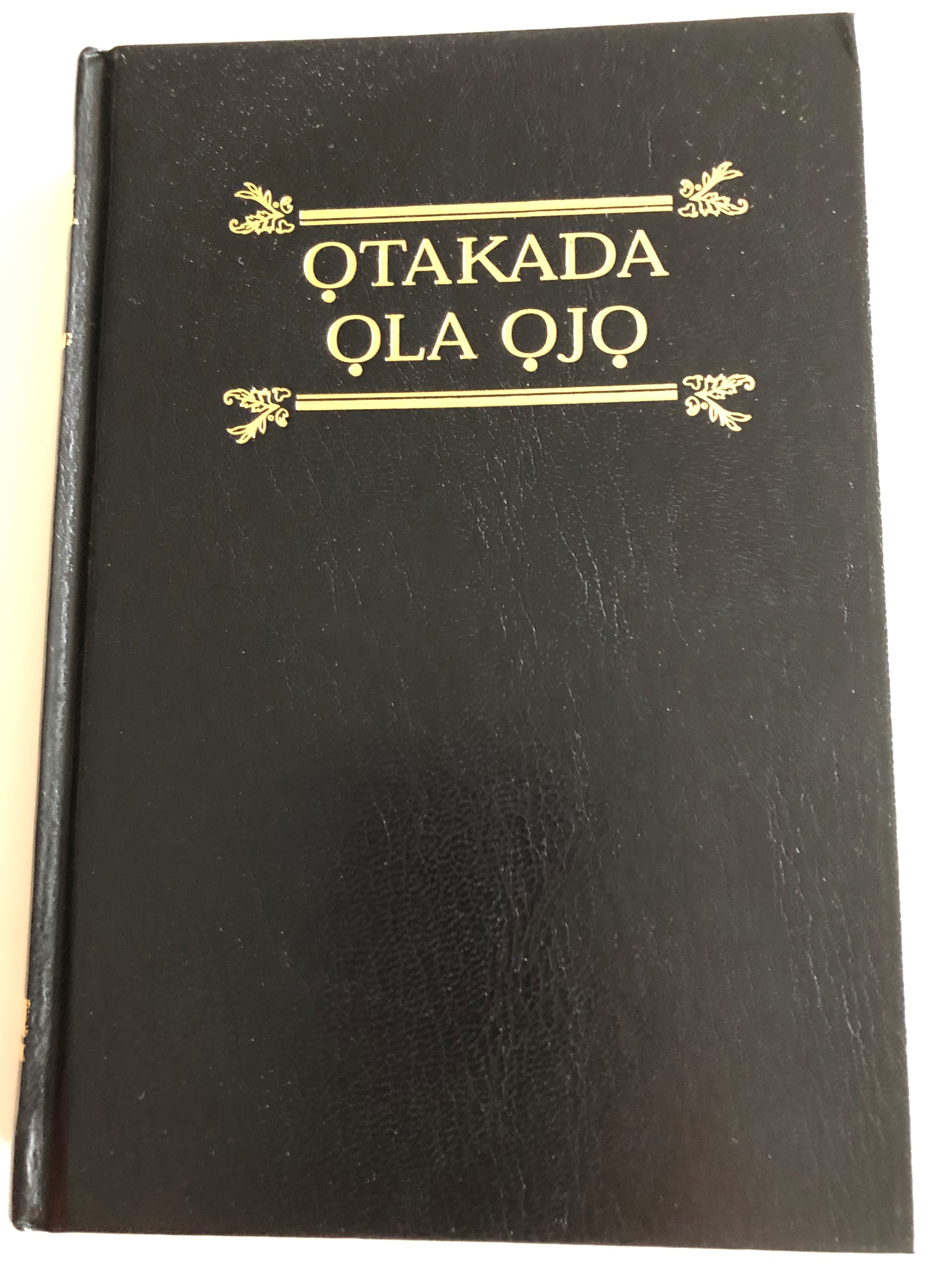
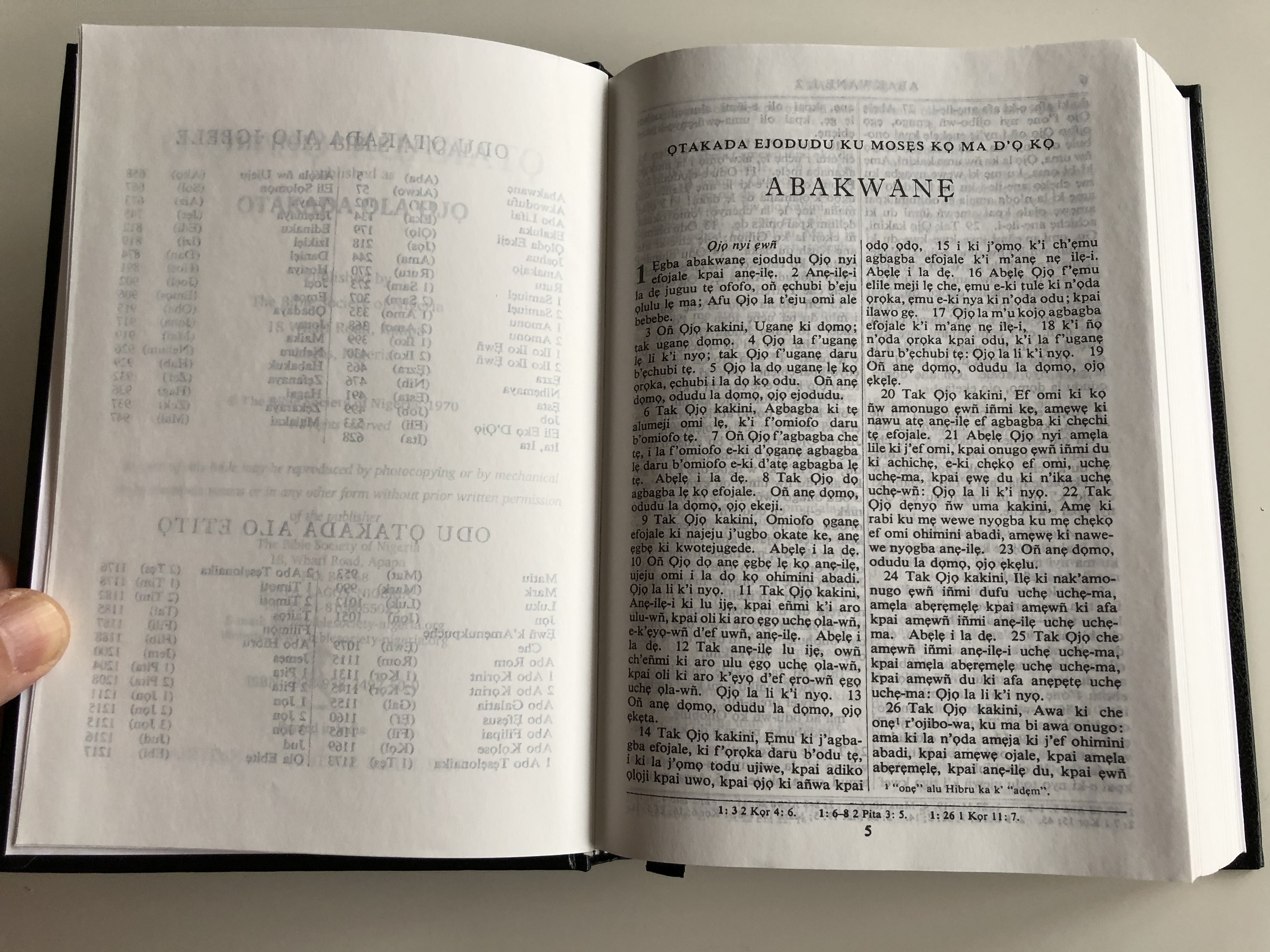
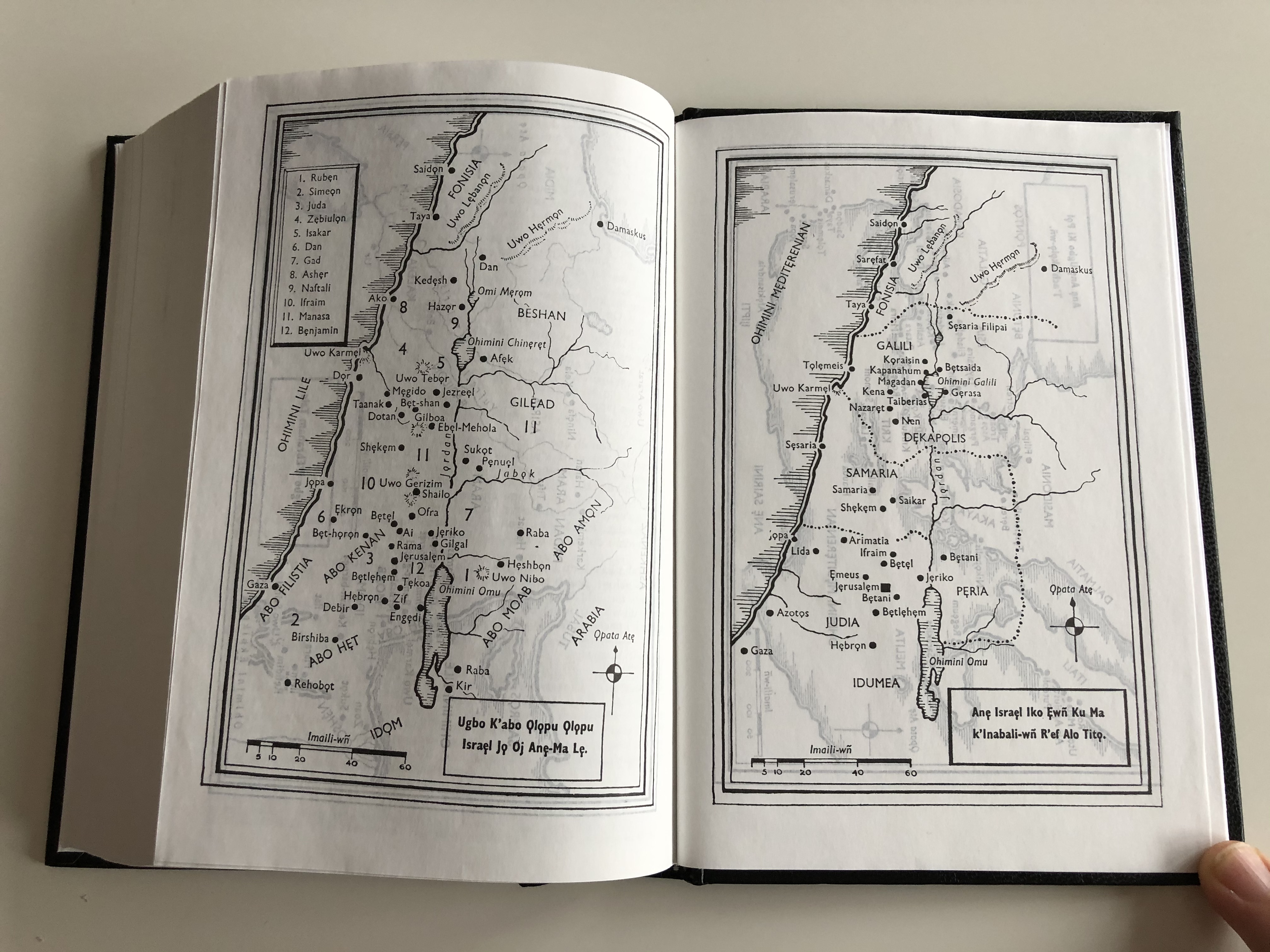
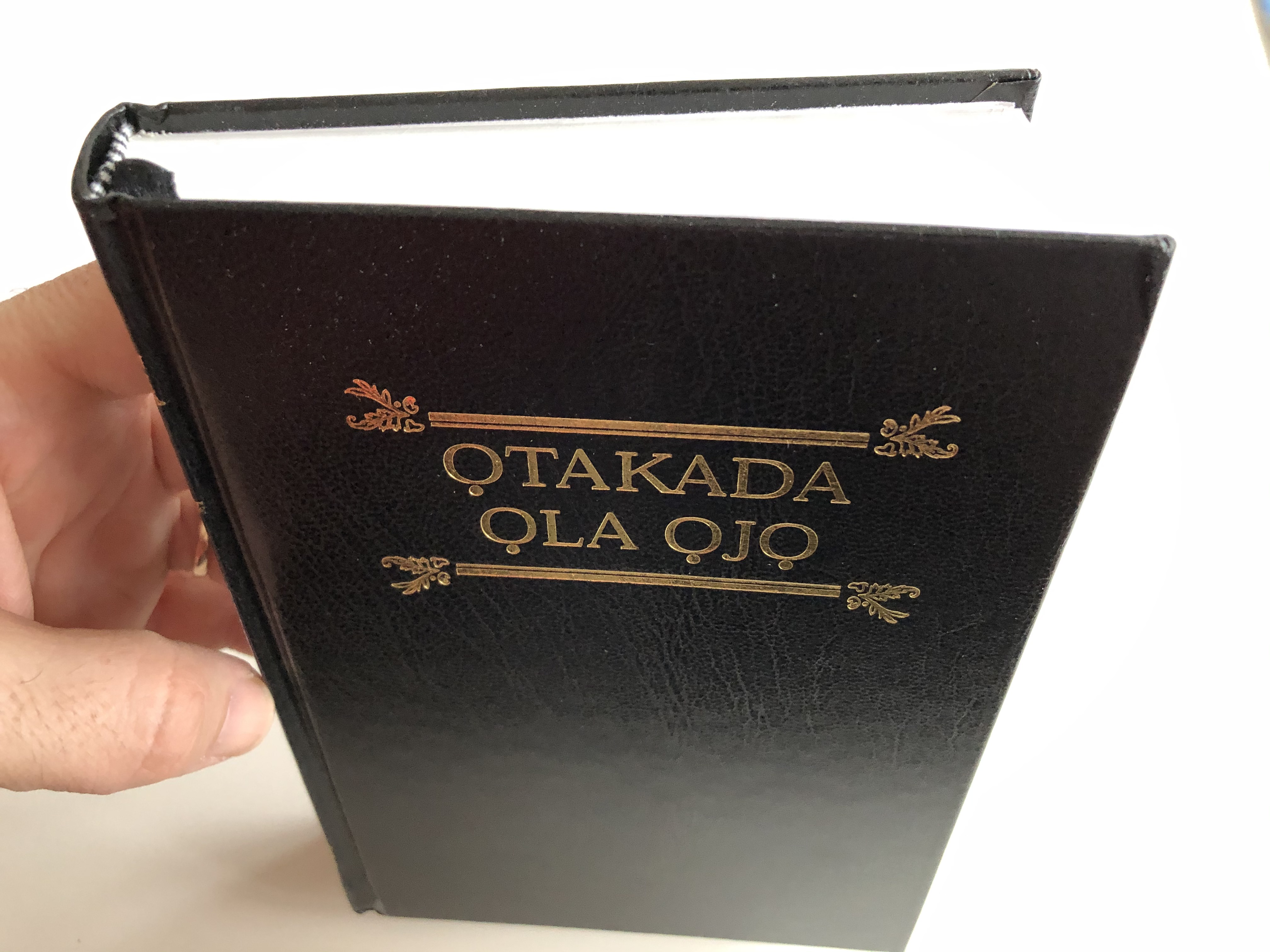



































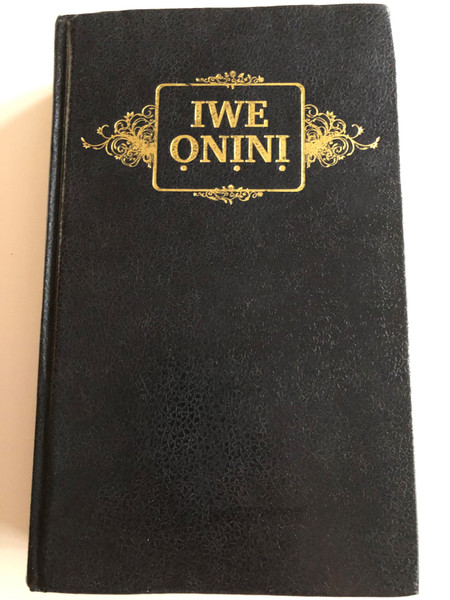

![Arabic Blue Hardcover Holy Bible / Arabic Bible [Hardcover] by Bible Society Arabic Blue Hardcover Holy Bible / Arabic Bible [Hardcover] by Bible Society](https://cdn11.bigcommerce.com/s-62bdpkt7pb/images/stencil/600x600/products/1949/4095/1%2520%25281%2529__87259.1721648217.JPG?c=2)
![Arabic Blue Hardcover Holy Bible / Arabic Bible [Hardcover] by Bible Society Arabic Blue Hardcover Holy Bible / Arabic Bible [Hardcover] by Bible Society](https://cdn11.bigcommerce.com/s-62bdpkt7pb/images/stencil/600x600/products/1949/4111/1%2520%25282%2529__03745.1462823219.JPG?c=2)



